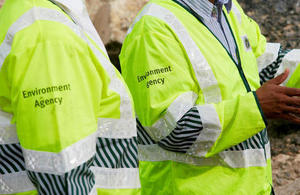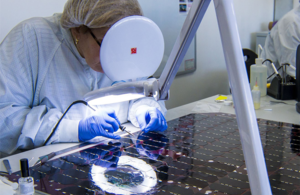Households urged to play their part in preventing waste crime
Press release
Don’t become a victim of dodgy waste carriers

The Environment Agency is urging householders and owners of land and property across Yorkshire to be vigilant in the protection of their property, and to check the credentials of any independent waste carriers to avoid becoming victims of waste crime during the continued Coronavirus lockdown.
These uncertain times are the perfect opportunity for criminals to take advantage of unsuspecting victims especially when householders are creating more waste and sorting through unwanted items during the clearance of outhouses, sheds and garages.
That coupled with the recent temporary closure of many Household Waste and Recycling Centres means that people have been desperate to clear some much needed space and remove their clutter.
Households, just as much as waste companies, local authorities and businesses have a responsibility to check what happens to their waste. This is known as a Duty of Care. Anyone found to be knowingly involved in the illegal dumping of waste could be liable for Landfill Tax, or prosecuted alongside the actual illegal operators.
Mark Adams for the Environment Agency said:
Unlicensed waste operators often advertise to homes via social media or through leaflets posted through the front door. They might offer what seems like a great deal to get rid of an old sofa or fridge for example, garden waste or building rubble, but you as householder are responsible for the waste you produce. If it ends up dumped illegally you could be prosecuted.
Waste crime can cause serious pollution to the environment put communities at risk and undermines legitimate business and the investment and economic growth that go with it. It’s estimated to cost the UK economy £600m every year. That’s enough to build and staff a new NHS hospital.
Thankfully there are some easy steps for people to take to avoid unwittingly contributing to waste crime.
-
Check the people taking away your rubbish are a registered waste carriers. Ideally they should have a copy of their registration documents on them, ask to see these. You can check their licence number at environment.data.gov.uk/public-register, or call 03708 506506 and we can check for you
-
Get a written receipt/transfer note showing their contact details, a description of your waste and details of where they are taking it
-
Note down the make, colour and registration number of the vehicle that’s taking your waste away.
Mark added:
And remember, if their quote seems too good to be true, it probably is. Make sure you get another quote to see if it’s in the right area. Taking these steps will help us all work together to deter waste criminals and reduce illegal fly-tipping and dumping that are a blight on communities and cost thousands to clear up and make safe.
You can report suspected waste crime to the Environment Agency incident hotline 0800 807060 or anonymously to Crimestoppers on 0800 555 111.
Published 5 June 2020
